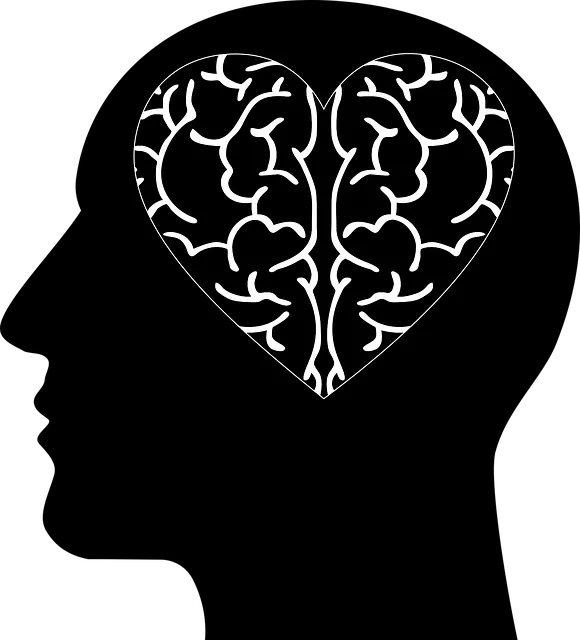Resilience is a key focus at Englewood Kaiser Permanente psychiatry, where they've developed the RFM (Resilience, Flexibility, Mindfulness) framework to improve patient outcomes. This holistic approach combines inner strength development, mindfulness practices, and coping skills exercises. Through innovative programs integrating physical exercise, coaching, and compassion cultivation, they empower patients and staff to navigate challenges, enhance mental wellness, and foster emotional healing. Regular evaluation ensures the RFM programs' effectiveness, guiding improvements and raising awareness for better mental health care.
Resilience is a vital asset in healthcare, enabling individuals to navigate life’s challenges. The RFM (Resource, Fortitude, Mastery) model offers a structured approach to building mental resilience. This article explores the transformative potential of RFM within the context of Englewood Kaiser Permanente Psychiatry, showcasing its successful implementation. We delve into the science behind exercise as a powerful tool for enhancing resilience and provide practical guidelines for designing effective programs. Additionally, it examines evaluation methods to measure the impact of RFM exercises, offering valuable insights for healthcare professionals.
- Understanding RFM: A Framework for Resilience in Healthcare
- Englewood Kaiser Permanente Psychiatry: A Case Study on RFM Implementation
- The Role of Exercise in Enhancing Mental Resilience
- Designing Effective Resilience-Building Programs for Patients
- Measuring Success: Evaluating the Impact of RFM Exercises
Understanding RFM: A Framework for Resilience in Healthcare

Resilience is a cornerstone of mental well-being, especially within healthcare settings where individuals often face significant challenges and stress. The RFM (Resilience, Flexibility, and Mindfulness) framework offers a structured approach to enhancing resilience, particularly in psychiatric care. At Englewood Kaiser Permanente psychiatry, this model is embraced as a powerful tool for empowering patients and staff alike.
By focusing on these three key dimensions, RFM fosters Inner Strength Development and promotes the integration of Mind Over Matter principles. Resilience enables individuals to adapt to adversity, flexibility ensures they can navigate change, and mindfulness helps them remain grounded in the present moment. Through various exercises targeting Coping Skills Development, the RFM framework equips people with effective tools to confront and overcome mental health challenges, ultimately leading to improved outcomes and enhanced quality of life.
Englewood Kaiser Permanente Psychiatry: A Case Study on RFM Implementation

Englewood Kaiser Permanente Psychiatry has been at the forefront of integrating innovative practices to enhance patient care and well-being. They have successfully implemented RFM (Recovery, Resilience, and Mental Health) principles as a cornerstone of their approach, focusing on building resilience in individuals facing various mental health challenges. This case study highlights their effective strategies.
The healthcare provider recognized the importance of addressing trauma and fostering compassion cultivation among its patients. By incorporating Trauma Support Services and Mental Wellness Coaching Programs Development, they offer comprehensive care. These programs not only support traditional therapy but also emphasize practical exercises aimed at cultivating resilience. Compassion Cultivation Practices play a significant role in this process, helping patients develop empathy and self-compassion, which are essential for emotional healing and overall mental wellness.
The Role of Exercise in Enhancing Mental Resilience

Regular physical exercise plays a pivotal role in bolstering mental resilience, as demonstrated by various studies conducted at renowned institutions like Englewood Kaiser Permanente psychiatry. Engaging in activities that promote cardiovascular health not only strengthens the body but also has profound effects on cognitive and emotional well-being. Exercise acts as a powerful tool to combat stress and anxiety by releasing endorphins, often referred to as ‘feel-good’ hormones, which can significantly improve mood management and overall mental fortitude.
Moreover, incorporating structured exercise routines into daily life can enhance coping skills development. Mindfulness meditation practices, for instance, have gained prominence in psychiatric settings due to their ability to synchronise the mind and body, fostering a deeper sense of calm. Regular physical activity, combined with mindfulness techniques, can help individuals cultivate a more positive outlook, improve self-regulation, and better navigate life’s challenges. This holistic approach to mental health has been shown to be particularly effective in building resilience, enabling people to cope with stress and adversity in meaningful ways.
Designing Effective Resilience-Building Programs for Patients

Designing effective resilience-building programs for patients at Englewood Kaiser Permanente psychiatry requires a nuanced approach that balances structured interventions with individualized support. Mental wellness and emotional intelligence are core components, as these skills empower individuals to navigate stress, adversity, and challenging life events more effectively. Professional assessment plays a crucial role; a comprehensive risk assessment for mental health professionals helps identify vulnerabilities and tailor programs accordingly.
By integrating evidence-based practices, such as cognitive-behavioral therapy techniques, mindfulness exercises, and social support networks, these initiatives foster emotional resilience. The goal is not just to treat symptoms but to equip patients with long-lasting coping mechanisms that enhance overall mental wellness. At Englewood Kaiser Permanente, a holistic approach ensures that programs are accessible, engaging, and aligned with the unique needs of each patient.
Measuring Success: Evaluating the Impact of RFM Exercises

Evaluating the impact of RFM (Resilience, Flexibility, and Mindfulness) exercises is a crucial step in understanding their effectiveness for mental health initiatives like those provided by Englewood Kaiser Permanente psychiatry services. Measuring success goes beyond simply recording attendance; it involves assessing changes in participants’ emotional resilience, stress management skills, and overall well-being. This can be achieved through pre- and post-exercise surveys, where individuals rate their ability to cope with challenges, manage anxiety, and maintain a sense of calm.
The data collected from these evaluations provides valuable insights for improving RFM exercise programs. For instance, identifying specific areas where participants experience the most benefit allows mental health professionals to tailor activities and guidance more effectively. This, in turn, can enhance the overall Mental Wellness Journaling Exercise Guidance offered by Englewood Kaiser Permanente, contributing to the development of impactful Public Awareness Campaigns that promote Mental Health Awareness on a broader scale.
Resilience is a crucial aspect of mental well-being, especially in healthcare settings. The RFM (Resilience, Flexibility, and Mastery) framework offers a comprehensive approach to building resilience, as demonstrated by the successful implementation at Englewood Kaiser Permanente Psychiatry. Combining this model with exercise as a tool can significantly enhance patients’ mental resilience and overall well-being. Designing tailored resilience-building programs, as explored in this article, allows healthcare professionals to empower patients with effective coping strategies. By measuring the impact of these exercises, we can ensure that such initiatives are not only beneficial but also have a lasting positive effect, potentially revolutionizing patient care in psychiatric settings like Englewood Kaiser Permanente.






